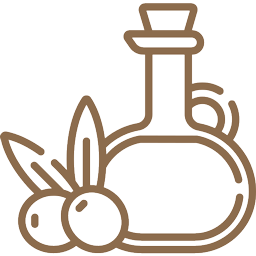Anise (Terpeneless) Essential Oil featuring natural anethole is a concentrated aromatic extract derived from Pimpinella anisum seeds. This refined oil undergoes specialized processing to remove terpenes, creating a stable product with consistent sweet, licorice-like fragrance characteristics. The concentrated anethole content delivers distinctive sensory properties suitable for commercial and artisanal applications across food, beverage, cosmetic, and aromatherapy industries.
Applications:
This essential oil serves multiple commercial purposes including flavoring agent for confectionery, baked goods, and beverage formulations. The cosmetic industry utilizes its aromatic profile in personal care products, perfumes, and scented formulations. Aromatherapy practitioners incorporate this oil in diffuser blends and massage oil preparations. Its concentrated nature makes it suitable for manufacturing applications requiring consistent aromatic intensity.
Benefits:
The natural anethole compound provides distinctive sensory characteristics that enhance product formulations. Its sweet, warming aroma creates pleasant olfactory experiences in various applications. The terpeneless processing ensures extended shelf stability and consistent performance in temperature-sensitive formulations. This refined extraction method maintains the integrity of the primary aromatic compounds while eliminating potentially unstable components.
Versatility:
The concentrated format allows for precise dosing across diverse applications. Food manufacturers can achieve consistent flavoring results with minimal quantities. Cosmetic formulators benefit from its stability in various base formulations. The oil blends effectively with carrier oils, other essential oils, and synthetic fragrance components, making it adaptable for custom formulations and proprietary blends.
Quality Assurance:
Each batch undergoes rigorous testing to ensure consistent anethole content and aromatic profile. The terpeneless extraction process follows standardized procedures to maintain product uniformity. Quality control measures include purity analysis, aromatic profiling, and stability testing to ensure reliable performance across different storage conditions and applications.
Sustainability:
Sourced from responsibly cultivated Pimpinella anisum, this oil supports sustainable agricultural practices. The efficient extraction process maximizes yield while minimizing waste. Proper storage in cool, dark conditions extends product lifespan, reducing replacement frequency and supporting resource conservation efforts.




















































